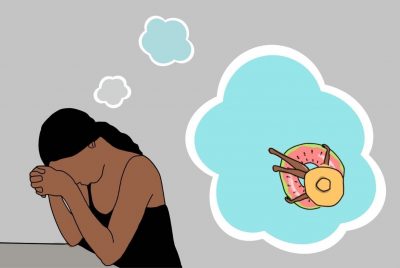After Boston University announced Tuesday the cancellation of next semester’s Spring Recess in addition to an extended winter break, the immediate response to this news, for most, was disappointment.
While Spring Recess is often riddled with stress and procrastination, it is a respite from classes nonetheless. And every year, it seems to roll around right when you need it.

Now, we will have one three-day weekend in February, and won’t see another break until April — only 10 days before our last day of classes. That drag will be manageable, but most certainly not enjoyable.
Rather than ending the school year early, the University is using that time to schedule an extended move-in period for the Spring semester. But how effective will that time be? While spacing out returning students was very helpful for the Fall semester, there’s no guarantee such a large influx of students will want to come back to campus.
Students have already left campus because they are feeling isolated and simply bored under COVID-19 restrictions. But this semester is at least broken up with a few three-day weekends and Thanksgiving Break. With a full stretch of no breaks next semester, the student response might not be any better.
We are now left with an odd amount of time for winter break — certainly not long enough for an internship and a slightly too short for a seasonal job. Students who were stuck at home for months on end this summer will now return to that environment, which may not be the best situation for some of them.
Those days reserved for Spring Recess could’ve been dispersed throughout the semester for a more digestible learning experience, rather than a daunting three-month period of no breaks.
If we had a few three-day weekends a month, professors would have to adjust their syllabi for the upcoming semester to account for missed days. But with student and faculty complaints about Learn from Anywhere, the University will likely have to make adjustments to the learning experience anyway.
It would be beneficial to simultaneously address these concerns.
Regardless of how students personally feel about the decision, sending out this news about Spring Recess well in advance was a helpful move on the University’s part, as we still have ample time to plan our travel and residence decisions.
It is understandable the University would sacrifice Spring Recess. It is not a federal holiday, and there are no cultural or religious celebrations tied to it, unlike the Thanksgiving and winter breaks.
BU is also attempting to avoid the dilemma we must face with Thanksgiving, though whether it will work is questionable. Students are encouraged to remain off campus if they leave for holiday, but as always with LfA, there is no guarantee that those guidelines will be followed.
So, similarly, students will be free to vacation at any time during the semester even without an official Spring Recess. Even in the Spring, students could still leave campus for a vacation — during a usual school week or any time at all. But by officially canceling the break, the University is at least mitigating the encouragement of travel.
Albeit, if students did have a week off next semester, there most likely wouldn’t be much to do. It will be a stark contrast from last year, when students all over the country and world were mid-travel when they received the news that they would not be returning to campus.
We have no idea what the status of the virus will be by then, but it is not outlandish to assume we will still be in pandemic mode.
Having classes straight through the semester will keep us all busy, and could actually be a beneficial thing for those who usually stay on campus during breaks. It’s rather detrimental for one’s mental health to be isolated on campus while all their friends are gone.
The Spring semester will not be what we’ve hoped for, but at the very least, we have an idea of what it will look like — a stark contrast from last year when we had no idea about the whirlwind of chaos that was to come.



















































































































